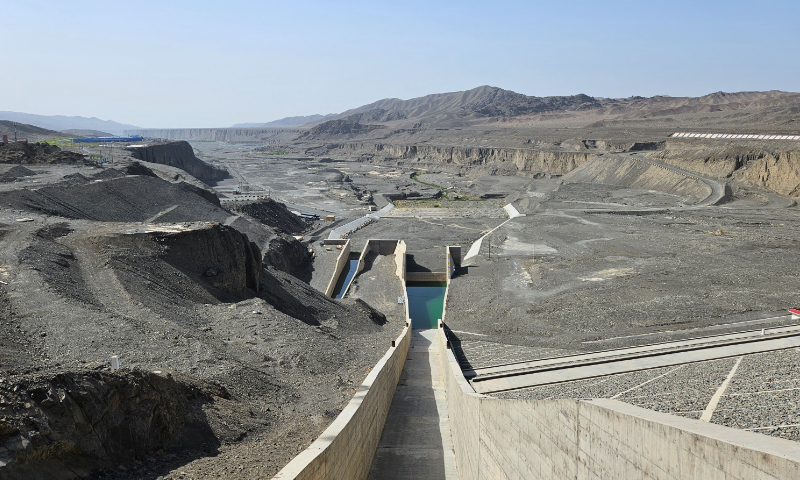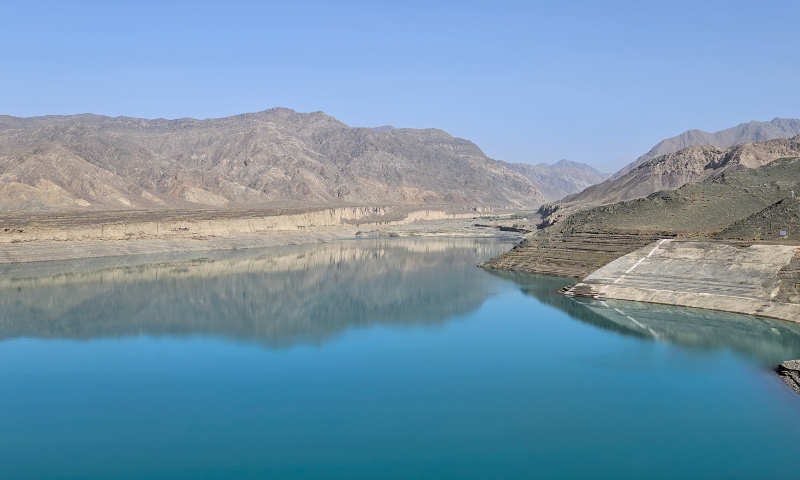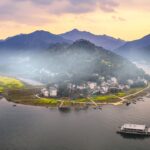Known as China’s “furnace” for its intense heat and low rainfall, Turpan in Northwest China’s Xinjiang Uygur Autonomous Region has had to find ways to cultivate the barren land through generations of efforts, the Global Times learned in a recent trip to the region.
Located in the heart of the Eurasian continent and isolated from humid oceanic air, the Turpan Basin has extreme temperatures reaching 49.6 C and an average surface temperature of 70 C. With annual average precipitation of 16 millimeters, Turpan is also the driest place in China.
Water is essential for survival and also the lifeblood of Turpan’s economic and social development. The city faces serious water scarcity and has an uneven spatial and temporal distribution of water resources, making water management optimization and efficient usage imperative.
In ancient times, the Karez, meaning “well” in Uygur language, was Turpan’s lifeline. It is a delicate irrigation system composed of vertical wells, underground canals, open canals and small ponds or reservoirs, with the main body of water buried underground.
The number of Karez in Xinjiang once reached 1,784, with more than 172,000 vertical wells and a total length of 5,272 kilometers of underground canals. Today, there are still 997 Karez left in the Turpan region, of which 214 still have running water and continue to be the main water sources for irrigation, drinking and ecological use in some villages.
Currently, agricultural irrigation in Turpan covers an area of 2.25 million mu (149,900 hectares), and the local government is sparing no effort in promoting the efficient and sustainable use of water resources, realizing both social and economic development and a healthy ecological environment.
By the end of 2022, Turpan had constructed 14 reservoirs with a total capacity of 214 million cubic meters, along with nine operational canal headworks, 6,175 kilometers of canals and more than 7,100 mechanized wells, the Global Times learned.

Daheyan diversion project primarily focuses on agricultural irrigation, flood control, and industrial water supply. Photo: Fan Anqi/GT
Turpan initiated the Daheyan diversion project in 2015, constructing a water conservancy hub in the upstream area of Turpan’s mountainous region. This project primarily focuses on agricultural irrigation, flood control, and industrial water supply.
The project was completed and put into use in 2021. It can supply 60.91 million cubic meters of water to downstream areas annually, satisfying the agricultural water demand of 100,000 acres in the city.
By regulating surface runoff and optimizing the allocation of water resources along the Daheyan River, the project has ensured urban water supply and resolved seasonal water scarcity issues in irrigation areas.
Ecological and environmental protection also constitute a crucial component of the local government’s efforts in establishing sustainable water supply.
Baiyang River, originating from the Tianshan Mountains and running through the Toksun county of Turpan, nourishes over half of the farmland in the county.
Under strengthened efforts in ecological conservation and wastewater treatment, the river has ranked first in water quality monitoring in Xinjiang for two consecutive years. In the first half of 2023, the water quality of the Baiyang River ranked ninth in the national surface water assessment.
“It is in our Turpan people’s blood to save even the tiniest drop of water, because we know all too well what would happen without it. We don’t even shake off the water after washing our hands,” Tursun Khan Hujiaihemit, a Karez tour guide, told the Global Times on Wednesday.
(Global Times)




